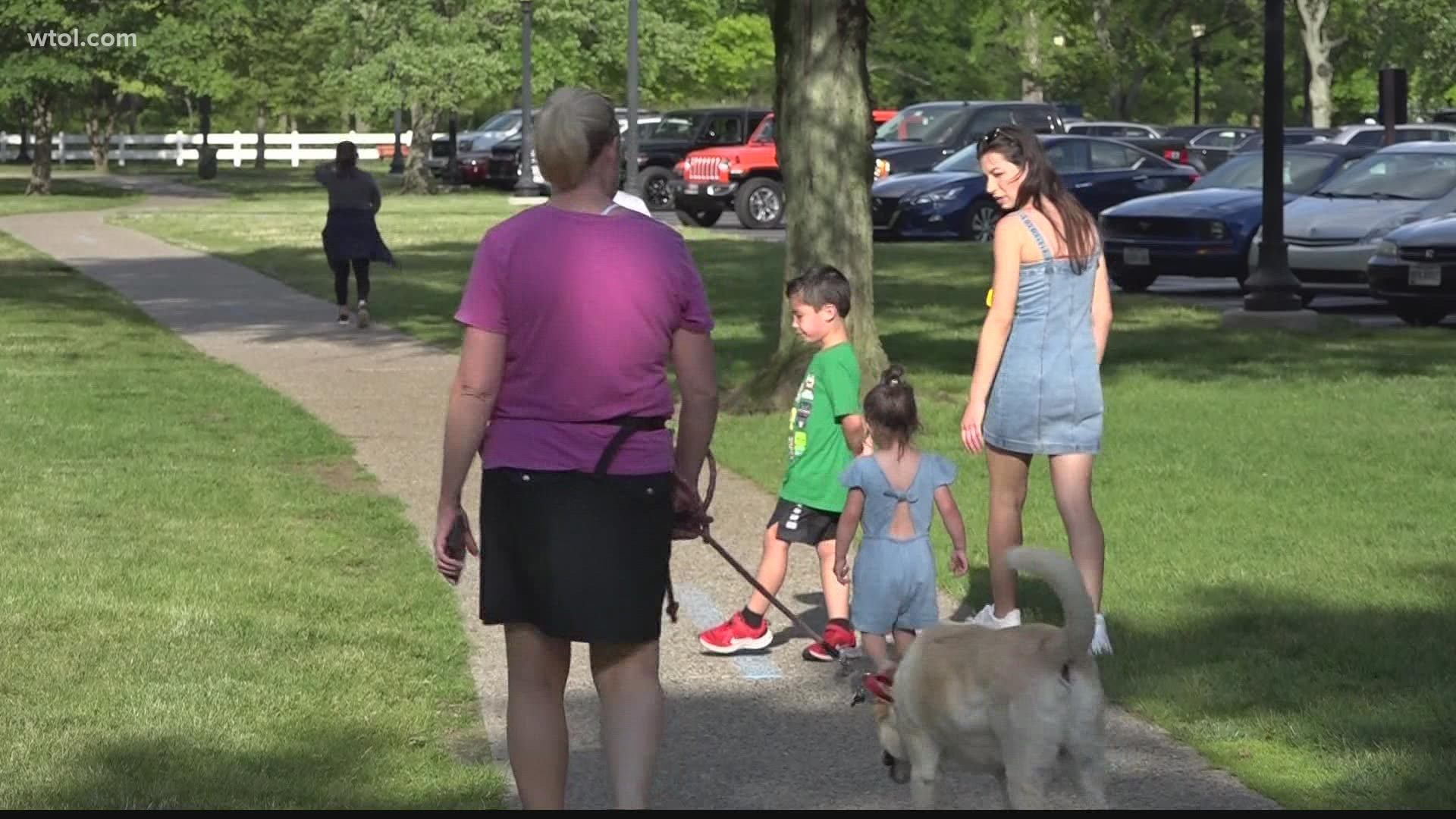PERRYSBURG, Ohio — If you're feeling stuffy and congested, you're not alone! Fall allergies are here.
"Yeah, I'm having a slight allergy crisis right now. I get it every year. It's like a slightly stuffy nose," Bowling Green resident Paxton Fritch said.
"My eyes get really tired, I guess. I guess I get tired and my eyes really itch," added Michigan resident Makayla Boyd.
ProMedica allergy and immunology specialist Dr. Jennifer Yonkof said she sees a lot of patients suffering from allergies this time of year.
"Sometimes my ears will get kind of clogged up, or like, my throat or sometimes I actually get, like, a cold but I know I always get it," said Brynn Najar.
Yonkof said there are two major allergens in the fall: weed pollen and mold.
"So, that kind of double-hit of having two environmental allergens at play with the crazy wet changes in weather and humidity can all lead to a lot of symptoms," Yonkof said.
If you're dealing with symptoms like itching, sneezing, a runny nose, nasal congestion and itchy, red watery eyes, Yonkof said, you are likely suffering from seasonal allergies.
However, if you're experiencing any fevers, chills or body aches, Yonkof said, you could have COVID-19 or another viral infection.
She noted that typically people who suffer from allergies have a pretty long history of it.
"You will likely have experienced similar symptoms in seasons past and your symptoms are much more chronic whereas with COVID-19, you really haven't had any seasonal allergies previously and it tends to occur much quicker," Yonkof said.
However, there are a lot of changes you can make to your environment and medications that can help.
"Keeping doors and windows closed and taking a shower after you've done any sort of outdoor activity, and wearing a mask while doing yard work can help reduce your pollen and mold exposure," Yonkof said.
She noted that over-the-counter nasal steroids and antihistamines can also be very helpful.

